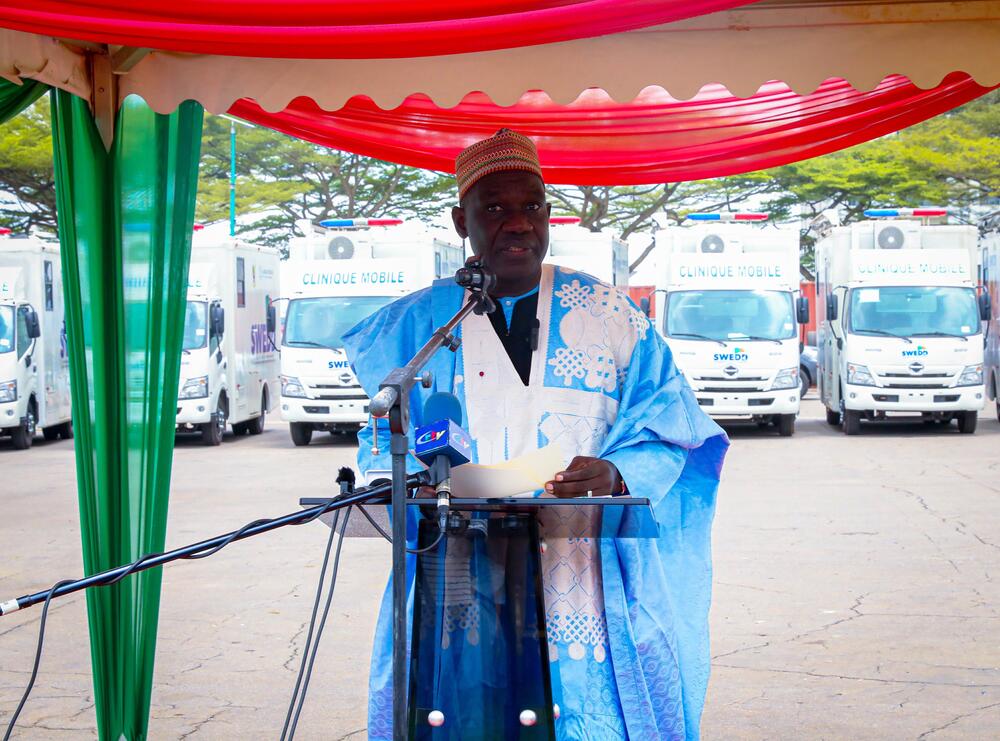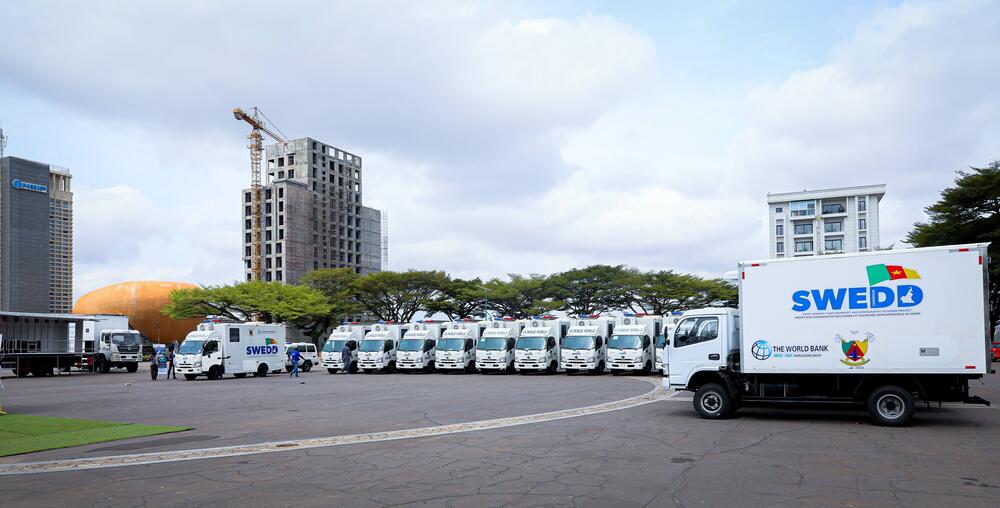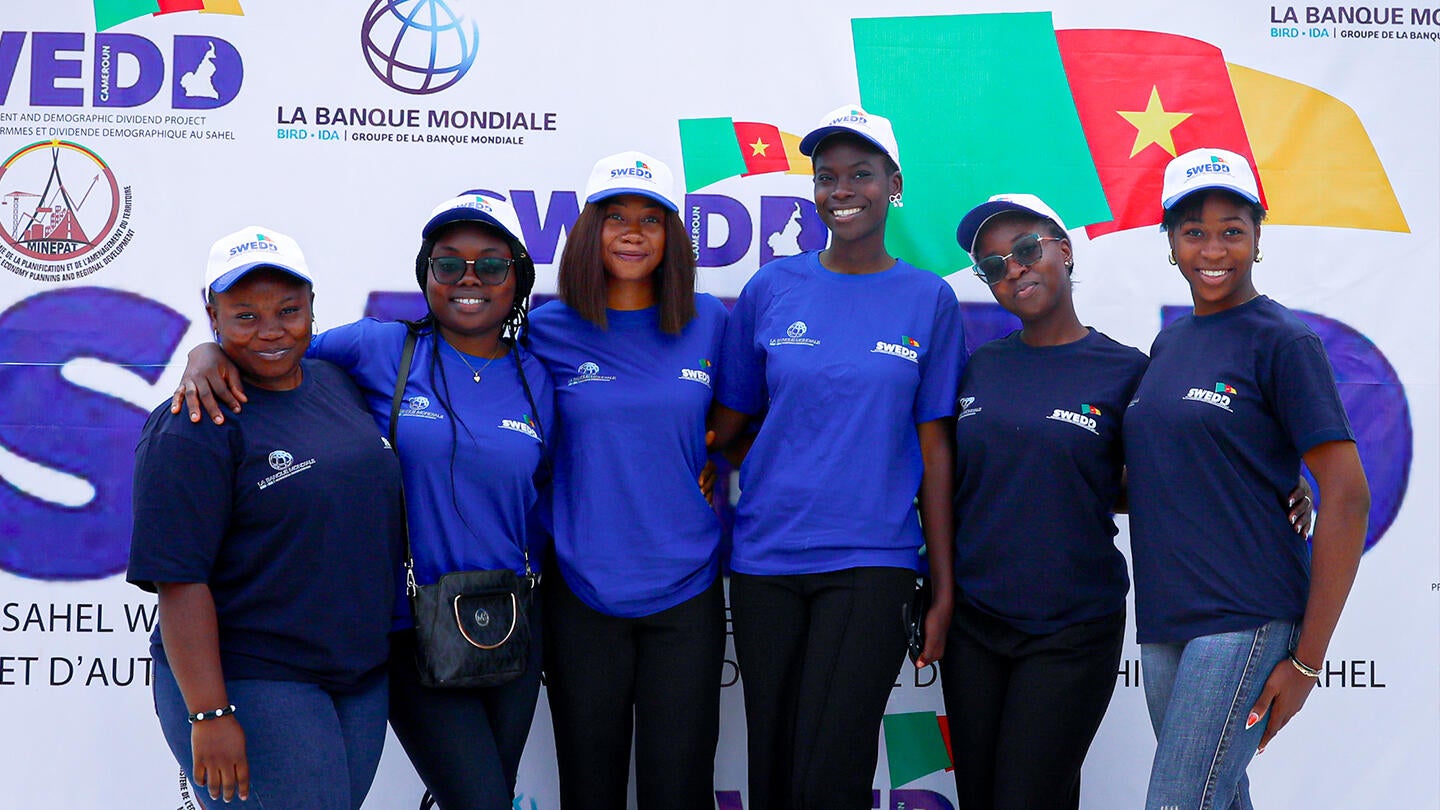As the SWEDD initiative comes to a successful close in Cameroon, it leaves behind a legacy of empowerment, having positively impacted 153 828 women and girls across the country. In a significant move to ensure the continuation of this pivotal work, all remaining equipment and resources acquired in the course of the project have been officially handed over to relevant ministries. This transfer aims to sustain the momentum of the initiative and further enhance impact on women and girls in Cameroon.
On 15th May 2025, Cameroon’s Minister of Economy, Planning and Regional Development and Chair of the SWEDD Steering Committee, Mr. Alamine Ousmane Mey, presented the technical and financial results of the second phase of the Sahel Women’s Empowerment and Demographic Dividend (SWEDD) project in Cameroon. The event brought together five other members of the government, the World Bank, development partners including UNFPA and UNICEF, civil society organizations, and media representatives.
The project achieved remarkable results, reaching 92 percent of its development objectives and 80.7 percent of intermediate results, with an overall disbursement rate of 81percent. The 16 billion F CFA allocated by the World Bank following the project’s restructuring in February 2024 supported strategic interventions to keep girls in school, develop women’s human capital, and promote economic empowerment—critical pillars for accelerating the demographic transition.
Cameroon joined the second phase of the regional SWEDD initiative in 2021 to leverage the implementation of its National Development Strategy (SND30), which prioritizes human capital development and the well-being of the population. At the time, the country’s Human Capital Index stood at 0.397, with a demographic growth rate of 2.7 percent, a life expectancy at birth of 54 years, and a fertility rate of 4.6 children per woman. The government focused SWEDD interventions in the Far North, North, and Adamawa Regions, targeting vulnerable girls and women, from 10 to 24 years, who were at risk of dropping out of school, early marriage or contracting an early pregnancy.

Minister Alamine Ousmane Mey. @UNFPACameroun/2025
Throughout the project, UNFPA provided technical assistance at the regional * to guide implementation and ensure alignment with global best practices. At national level, the United Nations Sexual and Reproductive Health Agency brought in its supply chain and communication backstopping to key strategic interventions helping the project to meet its targets, following a restructuring process.
The project established lasting mechanisms to promote women and girls’ education and protection. In this light, 82,708 primary and secondary school girls were reached with one or more interventions aimed at keeping them in school including school kits, payment of school fees, bicycles for transportation and educational support courses. Additionally, 45 Safe Spaces” were set up and operational with the technical assistance of UNFPA. These safe spaces were equipped with capacity-building curricula and management standards, with a total capacity to accommodate 4,500 women and girls. These contributed in the fight against the root causes of gender-based violence; promoting positive masculinity and supporting women’s economic empowerment. Furthermore, 167 vocational training centers were equipped to accommodate up to 66,000 women and girls per year.
These achievements are in line with national priorities, as emphasized by the Minister of Women Empowerment and the Family, Prof. Marie-Thérèse Abena Ondoa: “The goal was to strengthen the operational capacity of institutions supporting women and girls in order to eliminate the root causes of early marriage, early pregnancy and girls’ school dropout in the project’s three regions of intervention, namely the Far North, the North and the Adamawa.”
In the health sector, SWEDD trained 602 midwives in the management of obstetric complications and equipped 16 midwifery schools to improve their quality of training to ensure the availability of qualified health personnel. 18 others continued their Master's studies specializing in obstetric care management.
Furthermore, the project enabled the acquisition of a fleet of essential vehicles and medical equipment, including 12 mobile clinics, 3 ambulances, and 4 refrigerated trucks among others. These assets will help deliver quality healthcare in remote areas, deploy health services in emergencies, and ensure the availability and efficient storage of medical supplies and contraceptives. When receiving this rolling stock from the SWEDD Steering Committee Chair, the Minister of Public Health, Dr. Manaouda Malachie, stressed the importance of bringing health services closer to communities: “The mobile clinic, for example, will enable us to reach previously underserved areas.”

UNFPA Representative Dr. Justin Koffi echoed this sentiment, noting that scaling up these strategic interventions requires collective action: “We must seize this window of opportunity to fully harness the demographic dividend.” Similarly, Dr. Aissatou Diack, Health Specialist at the World Bank’s Cameroon office, reaffirmed the institution’s commitment to supporting Cameroon’s demographic transformation.
Through this initiative, UNFPA, the United Nations sexual and reproductive health agency, reaffirms its commitment to working alongside the Government of Cameroon, the World Bank and other partners to keep empowering women and girls, focusing on their accessibility to education, health, vocational training and economic opportunities as well as eliminating all forms of gender-based violence and harmful practices.


